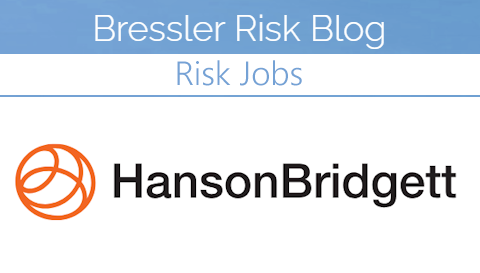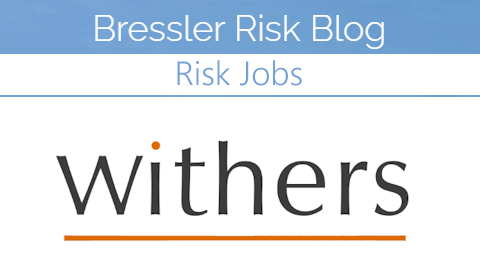Conflicts & DQ News — Firm Disqualified from Apnea IP Action, Another Clerk Conflict Clash, Governor’s Permitting Practices Raise Conflicts Concern
Posted on
“Hochul Approved Permits That Could Help Clients of Her Husband’s Firm” —
- “Gov. Kathy Hochul created at least the appearance of a conflict of interest when her administration approved permits benefiting two recent clients of a large law firm that employs her husband, environmental activists and two New York State lawmakers said this week.”
- “The criticism stemmed from her administration’s announcement on Monday that it would allow the construction of a contentious natural gas pipeline and issue a permit to a Central New York cryptocurrency mine whose operations have been opposed by the activists.”
- “In separate statements over the past few days, the activists and lawmakers — two Democratic members of the State Assembly who are aligned with Zohran Mamdani, the mayor-elect of New York City — said Ms. Hochul should have at least recused herself from the decisions.”
- “They noted that Ms. Hochul’s husband, William Hochul, works as a lawyer for the firm Davis Polk & Wardwell, which has represented the owner of the pipeline company and a private equity firm that has a large stake in the cryptocurrency mine.”
- “A spokesman for the governor’s office vigorously disputed the claims, calling them ‘ridiculous.'”
- “Mr. Hochul ‘does not take on any clients with any matters before New York State — period,’ said the spokesman, Anthony Hogrebe, who added that Davis Polk was ‘one of the largest law firms in the world.'”
- “The governor’s office said that Ms. Hochul follows a strict recusal policy to avoid conflicts with her husband’s work. But the decisions in question required no recusal, Mr. Hogrebe said, because Davis Polk did not represent either the pipeline or the crypto miner in their efforts to obtain permits.”
- “At Davis Polk, Mr. Hochul ‘advises clients on complex government and internal investigations, crisis management, communications strategy, risk mitigation and other matters,’ according to the firm’s website.”
- “One of the firm’s clients, Tulsa-based Williams Companies, is planning to build a $1 billion underwater gas pipeline off New York City. The pipeline project had previously been rejected three times by New York State regulators over environmental concerns. But on Monday, Ms. Hochul said she would allow it, citing a need to hedge against possible energy shortages.”
- “Another recent client of Davis Polk, Atlas Holdings LLC, was a major investor in the cryptocurrency mining firm, Greenidge Generation, which has faced criticism for using a gas-fired power plant to run computers that mine Bitcoin. Atlas retained Davis Polk from June to August for help with an unrelated matter, the development of a data center in Pennsylvania.”
- “Separately, Davis Polk has provided advice on developing investment products to President Trump’s social media company, Trump Media & Technology Group, after it announced a partnership with a digital asset trading platform called Crypto.com. Neither Trump Media nor Crypto.com has any relationship with Greenidge, a spokesman for Atlas said.”
- “An opponent of both the pipeline and the Greenidge operation, Kim Fraczek, said Mr. Hochul’s work for Davis Polk raised questions regardless of whether he had personally worked on behalf of the projects.”
- “The governor’s ethics disclosures show that Mr. Hochul has earned between $850,000 and $950,000 a year from the firm, but he is not a partner and does not share in its profits.”
- “In a statement, Davis Polk said that it had represented Atlas only on the Pennsylvania matter. The firm said the pipeline owner, Williams, was a ‘longstanding firm client’ but ‘had no involvement in the pipeline project.'”
- “Charlie Javice, who was convicted for defrauding JPMorgan Chase out of $175 million, is demanding a new trial — claiming the judge’s law clerks got jobs with the banking giant’s law firm after her trial finished.”
- “In a motion filed in Manhattan federal court, the 33-year-old’s lawyers alleged that both of US Judge Alvin K. Hellerstein’s clerks had accepted jobs at Davis Polk & Wardwell, the powerhouse law firm that represents JPMorgan Chase.”
- “‘This commitment … was not disclosed to defense counsel until October 2025 (after trial and sentencing), is an apparent conflict of interest that creates, at a minimum, an appearance of impropriety,’ Javice’s lawyers wrote in the Monday filing.”
- “Javice, 33, was sentenced after a jury found her guilty of conspiracy, wire fraud, bank fraud and securities fraud. Prosecutors said she duped JPMorgan into buying her company for $175 million by falsely claiming her fintech startup Frank had 4.25 million users when it only had about 300,000.”
- “According to the motion, both of Hellerstein’s clerks worked as summer associates at Davis Polk in 2023 and accepted full-time job offers at the end of the summer. They deferred their start dates to September 2025 to complete their clerkships.”
- “The motion cites an instance during the trial when the judge, after conferring with his clerk, allowed a prosecutor to re-ask a question over a defense objection. ‘My law clerk agrees with you. You can ask the question,’ Hellerstein said, according to the transcript.”
- ‘This episode shows that the clerk was participating in real time in decisions concerning the permissible scope of examination on one of the most consequential subjects in the case, and that the clerk’s input aligned with the prosecution in a way that benefitted her future employer Davis Polk and her future client JPMC,’ Javice’s lawyers wrote in the filing.”
- “Javice’s lawyers said they only learned of the conflict after the trial and sentencing, when Davis Polk sent a letter to the court saying it had implemented an ‘ethical screen’ to prevent the clerks from working on the case.”
- “Davis Polk was not a peripheral player in the case, according to Javice’s attorneys. The firm’s lawyers appeared at hearings, litigated discovery issues and attended every day of the six-week trial, the filing alleged.”
- “The legal battle over the clerks’ alleged conflict comes as JPMorgan is fighting to stop paying Javice’s legal bills, which have ballooned to more than $73 million — with another $13 million added after her conviction.”
- “In a separate court filing in Delaware Chancery Court, the bank accused Javice and her lawyers of treating the fee advancement as a ‘blank check,’ billing for personal items like cellulite butter and luxury hotel upgrades.”
“Latham & Watkins Disqualified in Inspire IP Suit Against Nyxoah” —
- “Latham & Watkins LLP was barred from representing Inspire Medical Systems Inc. in a patent dispute over a competitor’s sleep apnea product.”
- “Latham’s ‘continued representation of Inspire in this matter would appear deeply improper,’ given the confidential information Latham obtained in its four-year relationship with Nyxoah SA‘s stock offering underwriters, Magistrate Judge Eleanor G. Tennyson of the US District Court for the District of Delaware said in a Tuesday order.”
- “Inspire sued Belgium-based Nyxoah for allegedly infringing several of its US patents ahead of Nyxoah launching its Genio sleep apnea therapy device in the US. Nyxoah sued Inspire in a separate case in September, asserting Inspire is infringing its own patents related to Inspire’s therapy systems.”
- “Nyxoah went public in 2021 to finance the development of Genio. Nyxoah retained Cantor Fitzgerald LP, and eventually Morgan Stanley, to underwrite several offerings. Both firms were represented by Latham during the due diligence process.”
- “Latham withdrew from representing Morgan Stanley and Cantor Fitzgerald before a stock offering earlier this year due to a business conflict, which was later revealed to be the firm’s representation of Inspire in this case.”
- “Nyxoah moved to disqualify Latham, arguing that based on Latham’s years of access to Nyxoah’s confidential information, including on the accused product, Latham’s representation of Inspire gives the appearance of impropriety.”
- “Although Latham never had any fiduciary or attorney-client relationship with Nyxoah, Latham ‘obtained access to confidential information from Nyxoah that is extremely pertinent to the present dispute,’ Tennyson said.”
- “Latham had access to Nyxoah’s financial information and internal documents detailing the company’s views on competing products, such as Inspire’s. The firm also participated in ‘no fewer than six intellectual property due diligence calls with Nyxoah’ while advising its underwriters, during which Nyxoah would provide its views on its own IP assets and products, including Genio, the magistrate judge said.”
- “To the outside, it appears Latham used confidential information Nyxoah provided to ‘garner business in the form of a patent-infringement suit against Nyxoah’ by its competitor. Whether that’s what happened is irrelevant, Tennyson said, adding that the appearance of impropriety is ‘glaring.'”
- “The magistrate judge rejected Latham’s assertion that Nyxoah can’t point to any case where a court disqualified an underwriter’s counsel for being adverse to the stock issuer in a later case. The character of the relationship between Latham, Nyxoah, and the underwriters isn’t the basis for disqualification. Rather, the record shows Nyxoah provided confidential information to Latham, as the underwriters’ counsel, that is ‘highly relevant’ to use against Nyxoah in this case, Tennyson said.”
- Decision: here.









